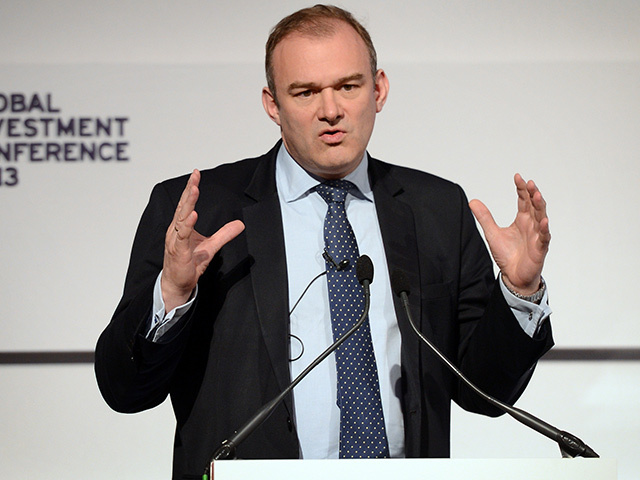
As the North Sea enters the next phase of its life, we will make sure it continues to provide jobs and wealth throughout the UK. North Sea oil and gas can work alongside wind, solar, tidal and nuclear power to cut expensive foreign imports and help keep our lights on with British-produced energy. The broad shoulders of the United Kingdom is unlocking the power of Scotland to take its place as one of the world’s great energy hubs – generating energy and generating jobs.
Oil and gas are expected to continue to provide 70% or so of our energy supply until at least 2030. So, as we will continue to need fossil fuels in the years to come, it is far better that as much of that oil and gas as possible is produced in the UK. And by continuing the advances being made in carbon capture and storage (CCS), even fossil fuels can have a role in a low carbon future. I recently awarded a multi-million pound contract to the Peterhead CCS project- the world’s first commercial scale gas CCS plant- which together with the White Rose CCS Project in Yorkshire represents an investment by government of nearly £100million over the next two years.
Moreover, we’ve attracted £45billion of investment in electricity since 2010 more than doubling Britain’s renewable electricity output. Our energy investment pipeline is by far the largest infrastructure pipeline in government with major investments in energy efficiency, smart meters, transmission and distribution networks, district heat networks, community energy projects and renewable heat. Home-grown energy enhances our energy security and boosts the economy.
For more than 40 years, the British North Sea has been producing oil and gas that has helped keep the lights on and our cars running. Since the 60s, 42 billion barrels of oil and gas have been extracted from the UK continental shelf. Not only has it contributed to Britain’s energy security, but it has supported hundreds of thousands of jobs across the country and contributed hundreds of billions of pounds in taxes to the Exchequer.
However, production in the North Sea has been declining since the turn of the century as reserves are used up and the oil and gas left gets harder to reach. In his review, Sir Ian Wood said that the British economy could benefit by up to an additional £200billion over the next 20 years by maximising resources and extending the life of the industry to recover an additional 3 billion to 4 billion barrels of North Sea oil and gas.
We are determined that we make the most of what is left.
We are setting up an independent regulator to steer us through the future decades of North Sea production and have already set up an advisory panel to guide and advise the process of implementation. The independent regulator will take charge of stewardship of the UK continental shelf, and will be properly resourced to drive the changes needed. Working with Government and Industry, this new body will implement a new strategy for maximising economic recovery from the North Sea. We’ve started the recruitment process for a CEO who will have a vital role shaping and leading the new regulator.
We’re also making good progress on legislation to begin to equip the new body with the powers it needs and we expect it to be debated in Parliament this autumn. In this year’s Budget Announcement, the Chancellor announced that the government will review the fiscal regime for the UK Continental Shelf to make sure it continues to incentivise economic recovery, working with the new regulator.
The North Sea is still attractive to investors at home and abroad. My energy colleague Michael Fallon is at the Oil and Gas Conference today and has announced that the Catcher Area Development Plan has been approved, which will allow Premier Oil and their partners to start the process of drilling for oil in an investment worth more than a billion pounds. The field is expected to produce 96 million barrels of oil equivalent and involve the drilling of 22 subsea wells. The project has provided good opportunities to UK business with several contracts being awarded to UK based companies.
There is lots of work going on behind the scenes within the UK government to make sure we make the most of this once in a generation opportunity to make real and lasting changes to the way that both government and industry work in the UKCS, for the benefit of all.
Ed Davey is the Secretary for Energy and Climate Change.
Recommended for you
